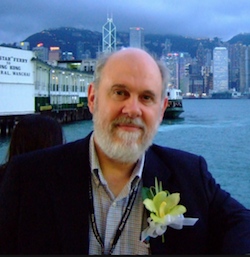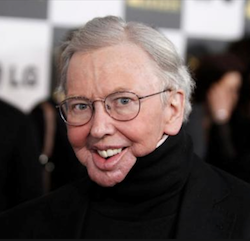UW film professor reflects on friendship with Ebert
David Bordwell first met Roger Ebert, who died yesterday after a long battle with cancer, in 2000. Ebert invited him and his wife, film theorist Kristin Thompson, to dinner after Bordwell gave a speech in Chicago.

David Bordwell, emeritus UW professor of film.
“I had no idea he knew me,” Bordwell, an emeritus professor of film studies at UW–Madison, said in an interview Friday. “I think one of the things about Roger that’s interesting is that he kept up with academic work to some degree.”
The two men formed a bond and friendship over their common love of film and Bordwell later wrote the foreword for two of Ebert’s books, “Awake in the Dark” and “The Great Movies III.” An edited transcript of the interview with Bordwell follows.
Q: Is there a movie you both loved and discussed a lot?
Bordwell: The film was “Citizen Kane,” which he, of course believed was the greatest film ever made. Last year, the last event of EbertFest was a screening of his commentary with the film. Instead of watching the film the normal way, we heard his commentary in the theater with 1,100-1,200 people there. I was on stage with the young man who produced that commentary with Roger and he and I had an onstage discussion about Roger. Roger was there, but he couldn’t speak. That was the last public event of EbertFest. We had his voice, and it was extremely good commentary. There’s no doubt that Roger, had he decided to go that way, could have become a film academic or professor. He noticed the kind of things and thought about the kind of things that we professors try to get our students to think about. But he obviously went another way, towards journalism.
Q: How did his career change with the Internet?
Bordwell: In a way the web freed him up to be more personal. He wrote about everything that interested him. Cooking, how he couldn’t taste the food, but he was still cooking for his wife. The depth of his character and the breadth of his interest got revealed more openly as he embraced the web and certainly as he became more sick he was able to write very candidly about his suffering and pain and also what he saw coming out of it that was valuable. I think he won a whole new audience. People who really may not have cared about his film criticism started to see him as a kind of example of how you can cope with facial disfigurement or persistent cancer and those things won him another level of respect, independent of what he said about movies.

Roger Ebert
Q: Do you think Ebert would understand the loss the public feels with his death?
Bordwell: I think he knew and he loved the fact that he was a major public figure. He is the most famous film critic in the history of the world, there’s no doubt of this. He was on “The Tonight Show” doing commentary before the Oscars. He’s going to be a point of reference. People are still going to go to that vast website, where amazingly he’s put up everything he’s published in books and in the press, but also all the TV shows. This is like an encyclopedia … a vast treasure house of information and opinion about film. I think he also understood by the end, given the warm response people felt towards him becoming more personal, more autobiographical on his website that part of it is people took a lot of lessons from his courage and his persistence.
Q: What is Ebert’s legacy?
Bordwell: He became a kind of go-between, or liaison between the filmmakers he loved — people like Scorsese and Herzog and others — and a public that was broader than your usual film-loving public. He played that role. He would always look at a film, try to get inside the mind of the filmmakers and say, “OK what were they trying to do?” And then say, “OK, did they do it well?” That’s so different from a lot of critics who have very thick standards of what good movies are. He was very flexible, in fact one of the things that people kind of criticized him for was that he liked too many things, that he was too generous to films and that sometimes he would give a movie a break or the benefit of the doubt that other critics would say, ‘No, that’s not as good as you say.’ But I think it’s not bad to be overgenerous. It’s better to be overgenerous than too stingy, and he was that way, I think.
–Interview conducted, edited and condensed by Jenny Price
Tags: arts, College of Letters & Science, film




